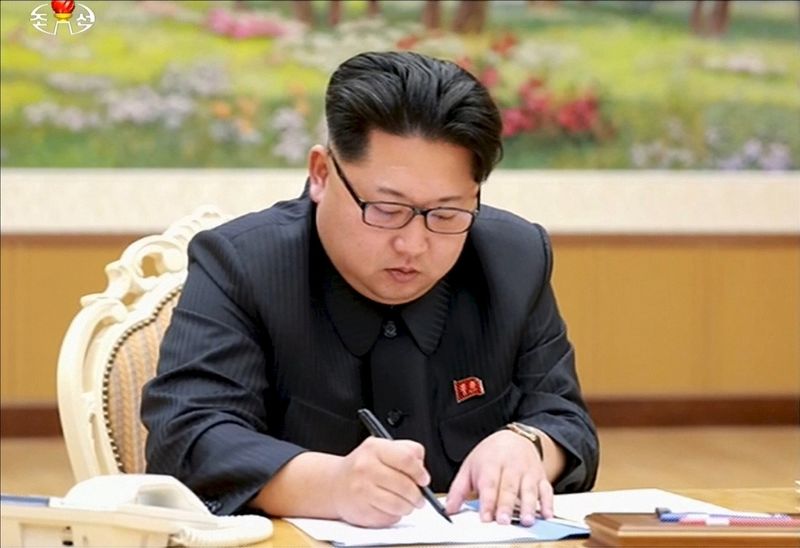By James Pearson (L:PSON) and Ju-min Park
SEOUL (Reuters) - North Korean leader Kim Jong Un's recent nuclear weapon test was designed to boost his domestic legitimacy ahead of a rare ruling party conference in May that could formalise market-based economic experiments in the isolated country, analysts say.
The Workers' Party Congress, once a regular event, was last held in 1980.
Although violent, the years since Kim took power following his father's death in late 2011 have moved the country towards increased stability and a return to a more "formal" way of running the country, said Michael Madden, an expert on the North Korean leadership.
"What some observers and analysts identify as instability is really more a matter of Kim Jong Un trying to reset a very entrenched system".
"And that can take a few years, as we've seen," Madden said.
While analysts have for years been wrong in predicting major reforms - or collapse - in North Korea, the fact that the event is taking place for just the seventh time after a decades-long hiatus is a further indication that Kim is transforming the North Korea his father Kim Jong Il ruled through back-channel dealings into a more "normal" state where formal process is ingrained.
North Korea conducted its fourth nuclear test on Jan. 6, provoking condemnation from its neighbours and the United States, although experts doubt Pyongyang's claim that it exploded a hydrogen bomb.
At the congress, Pyongyang is likely to announce policies on matters ranging from economics and politics to defence and relations with rival South Korea. It may even announce measures lifting restrictions on the thriving informal economy, said Cheong Seong-chang, a senior analyst at the Sejong Institute.
"It's possible Kim Jong Un may free up the market economy at some point during the congress," said Cheong.
Under Kim Jong Un, the unofficial economy has grown against a tumultuous political backdrop of high-level purges, including that of Jang Song Thaek, the young leader's uncle by marriage who was accused of factionalism and executed in December 2013.
When the last party congress took place over four days in 1980 at Pyongyang's February 8th House of Culture, a monolithic concrete pillar-fronted building since renamed the April 25th House of Culture, it was open to foreign delegations from countries friendly to North Korea.
It was then that Kim Jong Il was controversially anointed successor to his father, Kim Il Sung, creating the communist world's first hereditary dynasty when its founder died in 1994.
In signs the younger Kim is moving towards a more traditionally bureaucratic state, he has moved several high-profile officials between the ruling party and military, creating more inter-dependence between two bodies which used to face off against each other, according to analysts.
DISMANTLING 'SOPRANO STATE'?
A more formal North Korean state might also eventually be more transparent.
"Under Kim Jong Il, these guys would get their fiefdom then the leader gets to regulate it when he needs to," said Madden. "It's not unlike the mafia, or the Sopranos, where Tony has to make a ruling", he said referring to a long-running television programme about a New Jersey mafia chief.
Kim Jong Il was heavily reliant on North Korea's military to ensure regime survival and pushed a "military-first" policy which prioritised spending on North Korea's bloated and poorly-equipped army and nuclear programme.
But Kim Jong Un, believed to be 33, has been normalising the role of the Workers' Party and is "restoring a party-centred system," said Yang Moo-jin of the University of North Korean Studies in Seoul.
Kim Jong Un's regime has pushed a new policy, "byungjin", which stresses the simultaneous development of nuclear weapons and improving the economy.
Kim can now use the nuclear test to boost his legitimacy ahead of the congress, and declare a new political era under his rule, analysts said.

"North Korea needed a good result to celebrate at the congress and that was the hydrogen bomb test," said Lee Cheol-woo, a member of South Korea's parliamentary intelligence committee, citing a briefing by the South's intelligence agency.